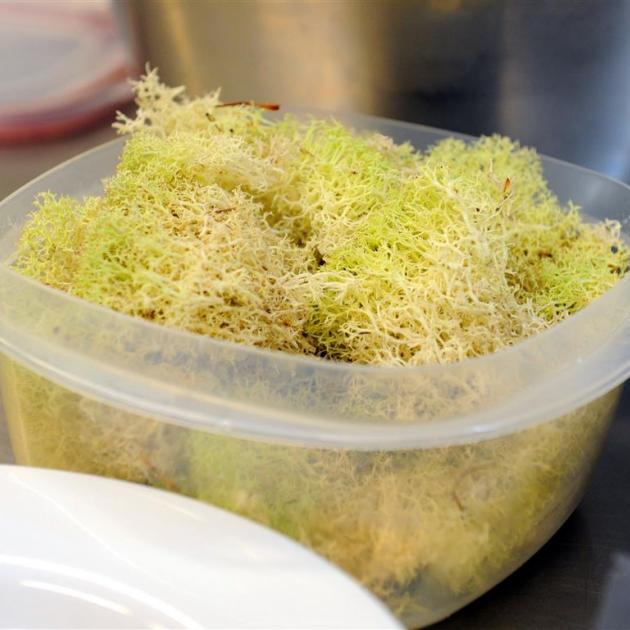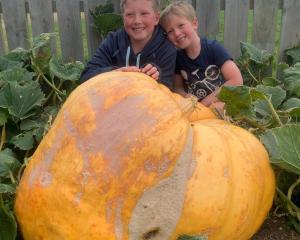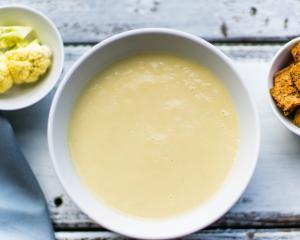Roots in Lyttelton was awarded Restaurant of the Year in the Cuisine Good Food Awards last year. Rebecca Fox attended a workshop at the International Food Design Conference in Dunedin recently where chef and co-owner Giulio Sturla shared his story.
It is "fine food, not fine dining'', Giulio Sturla says of the small plates of food served at his award-winning restaurant.
Roots, in Lyttelton, offers seasonal degustation menus based on locally grown produce from its own garden and other farms and small producers, as well as from foraging.
His success has come from humble beginnings. He describes setting up his restaurant after the Christchurch earthquakes in 2012 without any money.

"We didn't have a bar for two years. The only thing I spend money on was dining chairs.''
The chairs were important as his degustation or "tasting'' menu required diners to stay three or four hours, in some cases.
Apart from that, all the emphasis went on the kitchen and the food.
"That was the main thing for us.''
"Us'' is his partner and co-owner of Roots, American Christy Martin, who he met in Chile.
Sturla was born in Chile and grew up in Ecuador, but the pair left South America on a working holiday, ultimately ending up in New Zealand.
"We fell in love so we extended our visa. It's a beautiful place to be.''
That was nine years ago. Sturla worked in restaurants around New Zealand before the couple settled in Lyttelton.
Wanting to open a restaurant featuring his philosophy of using the best of sustainably grown, local produce, he took the plunge four years ago.
"It's been hard work but hard work makes you stronger.''
He started off with only two in the kitchen but now has a team of nine.
The team is considered family, given they spent so much time together, but also because Sturla considers it important that all his staff are happy. If they are not, they should not come to work, he believes.
"We don't work, this is a lifestyle. We spend six days a week together and have a family lunch together every day.''

That happiness comes from himself first and he puts a lot of emphasis on a positive mentality flowing through the cooking and serving process.
"It's the human touch.''
It was also important to recognise the producers, that someone had already put a lot of time and effort into the product before it was delivered to a restaurant door.
"Roots would not work in a city.''
He sees Banks Peninsula as his pantry which provides him with a bounty of food.
Every month he does a 45-minute walk gathering wild foods growing in his "neighbourhood'' - mushrooms, fruits, greens, beach herbs. The excess of porcini harvested meant he made his own porcini powder this season.
"There is so much food everywhere.''
His sea salt was homemade, by dehydrating a bucket of fresh seawater to produce an intense-tasting sea salt. The process took about five days.
The restaurant also made its own creme fraiche and smoked and cured its own eel and salmon, often using waste cuts. They also fermented a lot of ingredients, such as pears.
"It's very trendy, healthy for the belly. We do a lot of it, it's part of the kitchen [activities] every single day.''
He liked to use karengo seaweed to provide umami flavouring and small Darwin ants, which he soaks in a solution of honey, lemon and mint before freezing. A taste test of the ants produced a non-committal response from workshop participants.

The trick, Sturla said, was not to tell people what they were.
"A lot think it's pepper. I've only had one person out of 1000 not eat them.''
A trip to the West Coast provided a harvest of edible moss that, while tasteless, provided an interesting texture on dishes when deep-fried or covered in chocolate for desserts.
His staff in quiet times spent hours with tweezers picking out the dirt from between its tiny "leaves'' before it was cooked.
Sturla was quick to say he was not being "trendy'' but believed this was the only way to live and to have a future.
"We need to use it wisely to keep it for our kids.''
To raise awareness and get people talking about New Zealand's food and show respect for its produce, he organised ConversationNZ.
An 11-point food manifesto in line with the philosophy of thinking about where produce came from and eating sustainably was developed by participating chefs, including Bevan Smith, from Riverstone, and Fleur Sullivan, from Fleur's at Moeraki, as a result.
Sturla is not resting on his laurels, saying there is still plenty to discover about what his adopted country can provide.
"I don't want to stop thinking or developing dishes. I'm a curious guy. What else do you do? You taste.''











